| | | OFFLINE | | Post: 18.682
Post: 1.330 | Registrato il: 28/08/2005
Registrato il: 20/01/2009 | Administratore | Utente Veteran | |
|

 Earlier posts today, 10/21/09, on the preceding page.
Earlier posts today, 10/21/09, on the preceding page.
 GENERAL AUDIENCE TODAY
GENERAL AUDIENCE TODAY
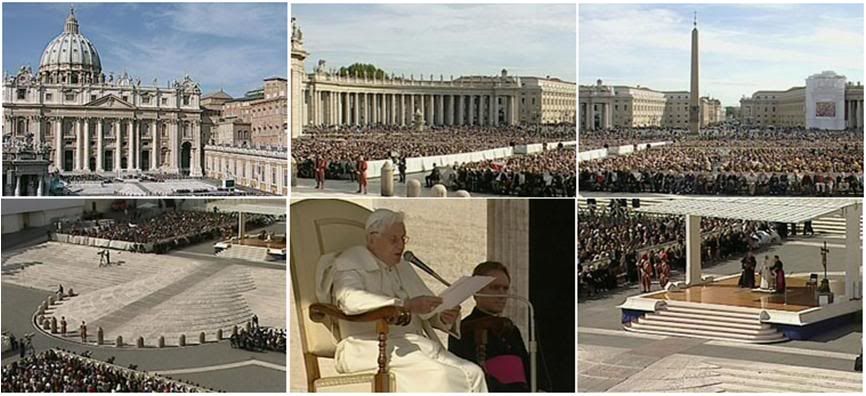
The Holy Father addressed a crowd of at least 40,000 in St Peter's Square today on a sunny but blustery day, and spoke of St. Bernard of Clairvaux.
Here is how he synthesized the lesson in English:
In our continuing catechesis on the theologians of the Middle Ages, we now turn to one of the most outstanding, Saint Bernard of Clairvaux.
Bernard combined the austerity of the Cistercian monastic renewal with intense activity in the service of the Church in his time. Because of his great learning and deep spirituality he is venerated as a Doctor of the Church, and is often called "the last of the Fathers".
Together with his theological writings and homilies, including the celebrated Sermons on the Song of Songs, Bernard maintained a vast correspondence, developed warm friendships with his contemporaries, defended sound doctrine, and combated heresy and outbreaks of antisemitism.
His spirituality was profoundly Christ-centred and contemplative, and his celebration of the sweetness of Christ’s name won him the title of Doctor mellifluus.
Bernard is also known for his fervent devotion to our Lady and his insight into her intimate sharing in the sacrifice of her Son. May Bernard’s example of a faith nourished by prayer, study and contemplation, lead us closer "to Jesus through Mary" and grant us that wisdom which finds joyful fulfilment in the knowledge of the saints in heaven.
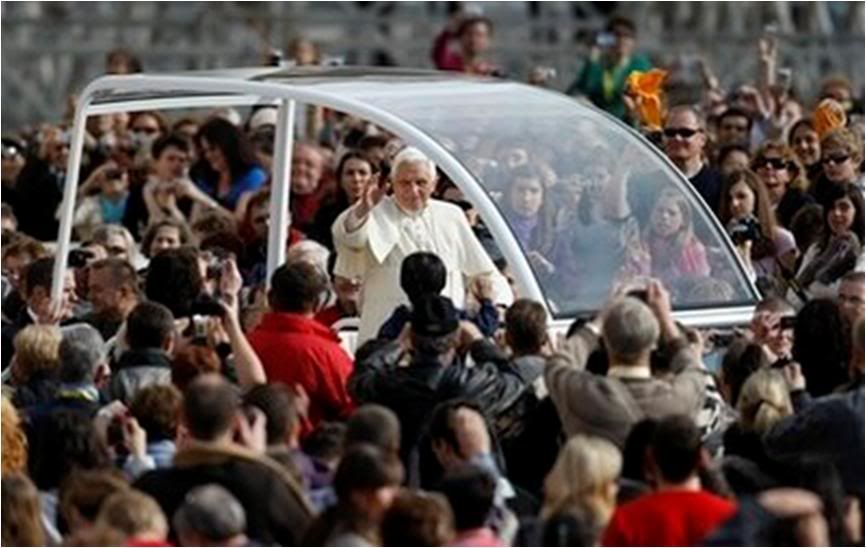
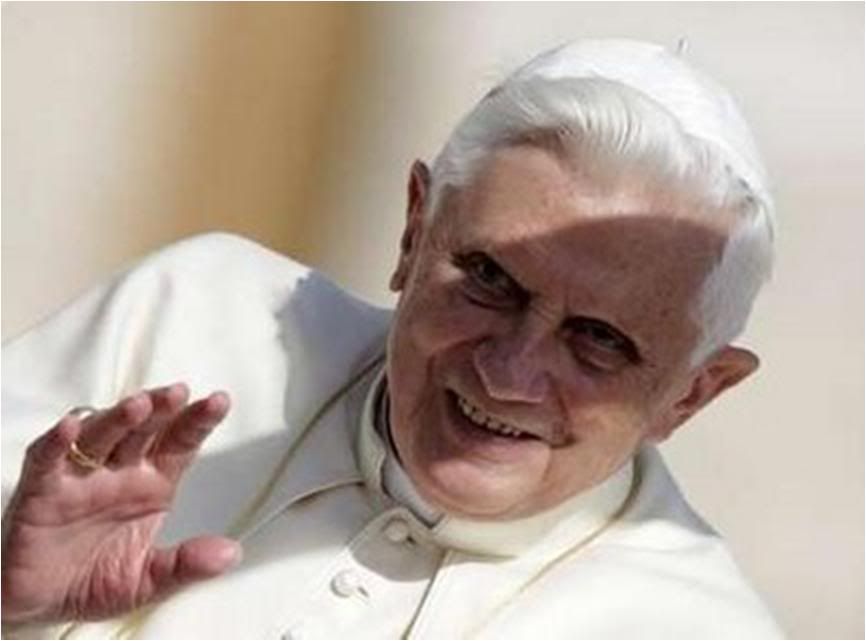
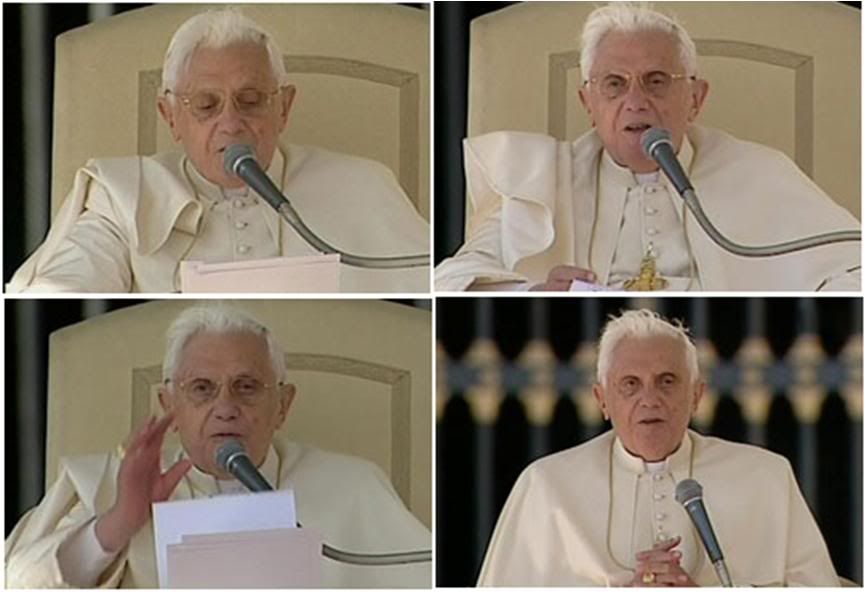
Here is a translation of the Holy Father's catechesis today:
BERNARD OF CLAIRVAUX,
DOCTOR OF THE CHURCH
Dear brothers and sisters,
Today I wish to speak about St. Bernard of Clairvaux, called "the last of the Fathers", because in the 12th century, he revived once more and made present the great theology of the Fathers.
We do not have details of his early years, but we know he was born in 1090 in Fontaines, France, to a large family which was modestly well off. As a youth, he excelled in his studies of the so-called liberal arts - especially grammar, rhetoric and dialectics - at the school of the Canons of the church of St-Vorles, in Châtillon-sur-Seine, and slowly matured his decision to enter the religious life.
When he was about 20, he entered Citeaux, a new monastic foundation which was more agile than the ancient and venerable monasteries of the day, and at the same time, more rigorous in the practice of the evangelical life.
A few years later, in 1119, Bernard was sent by St. Stephan Harding, third Abbot of Citeaux, to establish the monastery of Clairvaux. The young abbot was only 25, but here, he was able to refine his own concept of the monastic life and devote himself to translating it into practice.
Taking note of the [lack of] discipline in other monasteries, Bernard decisively stressed the need for a moderate and measured life - even in monastic food, clothing and edifices - while supporting and caring for the poor. Meanwhile, the community at Clairvaux became increasingly large and multiplied its own foundations.
In those years, before 1130, Bernard carried on a vast correspondence with many persons, important ones as well as those of modest social status. To the many letters of this period, one must add his numerous Sermons, as well as his Sentences[Judgments] and Tracts.
This period also dates the start of his great friendship with Guillaume (William), Abbot of St-Thierry, and with Guillaume of Champeaux, both among the most important monastic figures of the 12th century.
From 1130 on, Bernard started to concern himself with not a few grave questions of the Holy See and of the Church. Because of this, he had to leave his monastery more often, sometimes travelling outside France.
he also founded a few monasteries for women, and carried on a lively correspondence with Peter the Venerable, Abbot of Cluny, about whom I spoke last Wednesday.
He addressed his polemical writings above all against Abelard, a great thinker who had started a new way of theology, introducing the dialectic-philosophical method to the construction of theological thought.
Another front on which Bernard fought was against the heresy of the Catari, who held matter and the human body - and therefore, the Creator - in contempt.
He also felt it his duty to defend the Jews, condemning the increasingly widespread revivals of anti-Semitism. For this aspect of Bernard's apostolic activity, some decades later, Ephraim, Rabbi of Bonn, would pay a vibrant homage to Bernard.
During that same time, the holy abbot wrote his most famous works, such as the celebrated Sermon on the Song of Songs.
In the last years of his life - he died in 1153 - Bernard had to limit his trips without giving them up for good. He availed of the opportunity to review definitively all his Letters, Sermons and Tracts.
Worthy of mention is a particular book that he wrote at this time, in 1145 - when one of his pupils, Bernardo Pignatelli, was elected Pope, taking the name Eugene III.
On this occasion, Bernard, as the spiritual father of the new Pope, wrote to his spiritual son the text De Consideratione, which contained teachings on how to be a good Pope.
In this book, which continues to be convenient reading for the Popes of all time, Bernard indicates not only how to be a good Pope, but also expresses a profound vision of the mystery of the Church and the mystery of Christ, which is resolved ultimately in the contemplation of the mystery of the Triune and One God.
"One must pursue the quest for this God, who has not been sufficiently sought," he wrote, "but perhaps he can be sought better and found more easily with prayer than with discussion. Let us put an end here to this book, but not to the quest" (XIV, 32: PL 182, 808), on our journey toward God.
I wish now to dwell on two central aspects of Bernard's rich doctrine: they have to do with Jesus Christ and the Most Blessed Mary, his mother.
Bernard's concern for the Christian's intimate and vital participation in God's love embodied in Christ did not bring new orientations to theology on the scientific level. But in an even more decisive way, the Abbot of Clairvaux configured theology to the contemplative and the mystical.
Only Jesus, Bernard insisted, in the face of the complex dialectic arguments of his time, is "honey to the mouth, canticle to the ear, jubilation in the heart (mel in ore, in aure melos, in corde iubilum)".
Indeed, that gave rise to the title given to him by tradition of Dottor mellifluus - his praise of Jesus Christ, in fact, 'flows like honey'.
In the exhausting battle between the nominalists and the realists - representing the two philosophical currents of his time - the Abbot of Clairvaux never tired of repeating that there was only one name that mattered, that of Jesus of Nazareth.
"Every food for the soul is arid," he confessed, "if it is not drizzled with this oil, and insipid if it is not seasoned with this salt. That which you write has no taste to me, if you have not read Jesus". He concludes: "When you argue or speak, nothing has any taste to me, if you have not heard the name of Jesus" (Sermones in Cantica Canticorum XV, 6: PL 183,847).
Indeed, for Bernard, the true knowledge of God consisted in personal and profound experience of Jesus Christ and his love. This, dear brothers and sisters, is true for every Christian: Faith is above all an intimate personal encounter with Jesus - it is to experience his nearness, his friendship, his love. Only thus can one learn to know him ever better, to love him and to follow him even more. May this happen for each of us!
In another celebrated Sermon for the Sunday in the Octave of the Assumption, the holy Abbot described in impassioned terms the intimate participation of Mary in the redemptive sacrifice of her Son:
"Oh holy Mother", he exclaimed, "truly a sword pierced through your soul!... The violence of pain pierced your heart to such a degree that we can rightly call you more than a martyr, because your participation in the passion of your Son surpassed by far the intensity and physical sufferings of martyrdom" (14: PL 183,437-438).
Bernard had no doubts: "Per Mariam ad Iesum" - through Mary, we are led to Jesus. He affirms with clarity the subordination of Mary to Jesus, according to the bases of traditional Mariology. But the body of that Sermon also documents the privileged position of the Virgin Mary in the economy of salvation, as a consequence of the most particular participation of the Mother (compassio) in the sacrifice of her Son.
That is why, one and a half centuries after the death of Bernard, Dante Alighieri, in the last canto of the Divine Comedy, places on the lips of the 'Dottore mellifluo' the sublime prayer to Mary: "Virgin Mother, daughter of thy Son,/Humble and high beyond all other creature,/The limit fixed of the eternal counsel..." (Paradiso 33, vv. 1ss.).
These reflections, typical of one enamored of Jesus and Mary as St. Bernard was, today continue to inspire in salutary manner not just theologians but all believers.
At times, it has been sought to resolve the fundamental questions on God, man and the world only with the powers of reason. But St. Bernard, solidly based on the Bible and the Fathers of the Church, reminds us that without profound faith in God, nourished by prayer and contemplation, by an intimate relationship with the Lord, our reflections on the divine mysteries risk being a vain intellectual exercise and lose their credibility.
Theology remands us to the 'science of the saints', to their intuition of the mystery of the living Lord, to their wisdom, a gift of the Holy Spirit, which becomes the reference point of theological thinking.
Together with Bernard of Clairvaux, we too should recognize that man seeks God better and finds him more easily "with prayer than with discussion". Ultimately, the truest figure of the theologian and of every evangelizing person remains that of the Apostle John, who laid his head on the breast of the Master.
I wish to conclude these reflections on St. Bernard with the invocations to Mary that we read in one of his beautiful homilies: "In dangers, in distress, in uncertainties," he said, "think of Mary, call on Mary. Let her never leave your lips, let her never leave your heart. And so that you may obtain the help of her prayer, never forget the example of her life. If you follow her, you cannot go wrong; if you pray to her, you cannot despair; if you think of her, you cannot make a mistake. If she supports you, you will not fall; if she protects you, you have nothing to fear; if she guides you, you will not tire; and if she favors you, you will reach the goal..." (Hom. II super «Missus est», 17: PL 183, 70-71).
Holy 'Father Superior'....
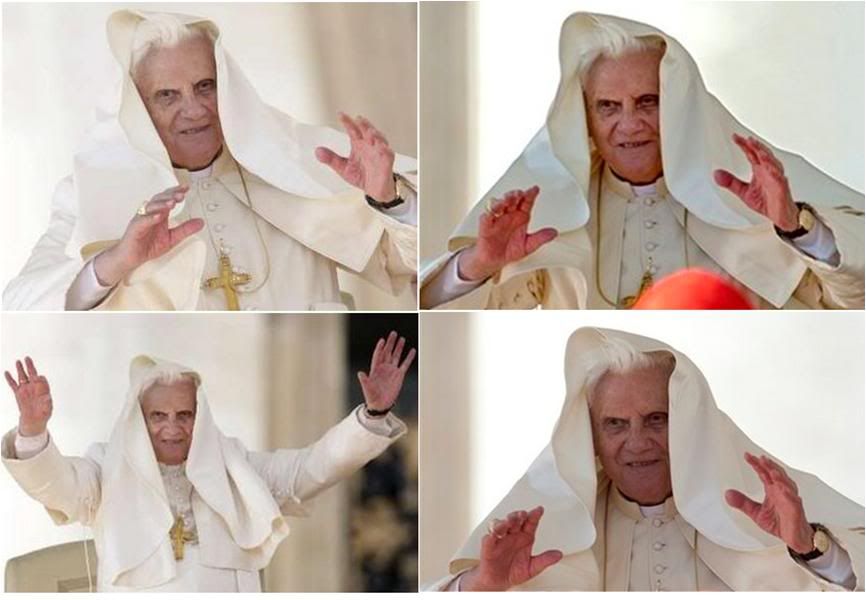 Or Archangel Benedict...
Or Archangel Benedict...
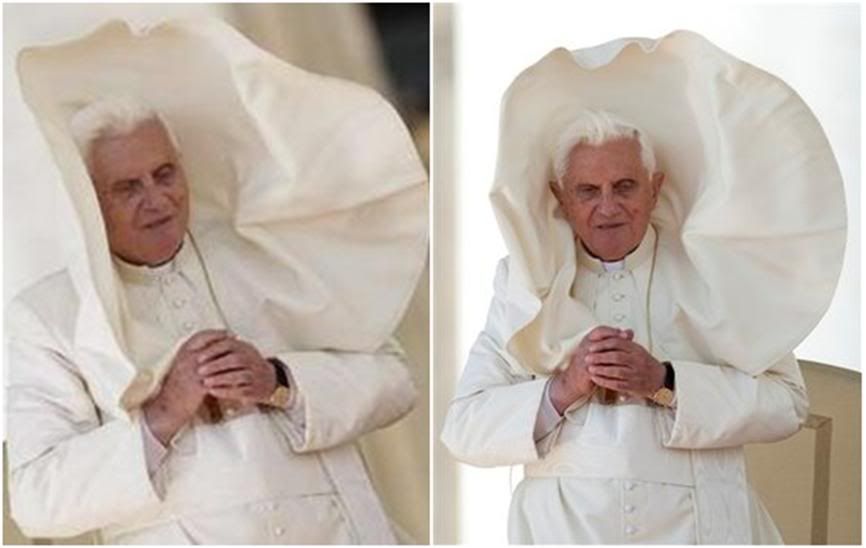
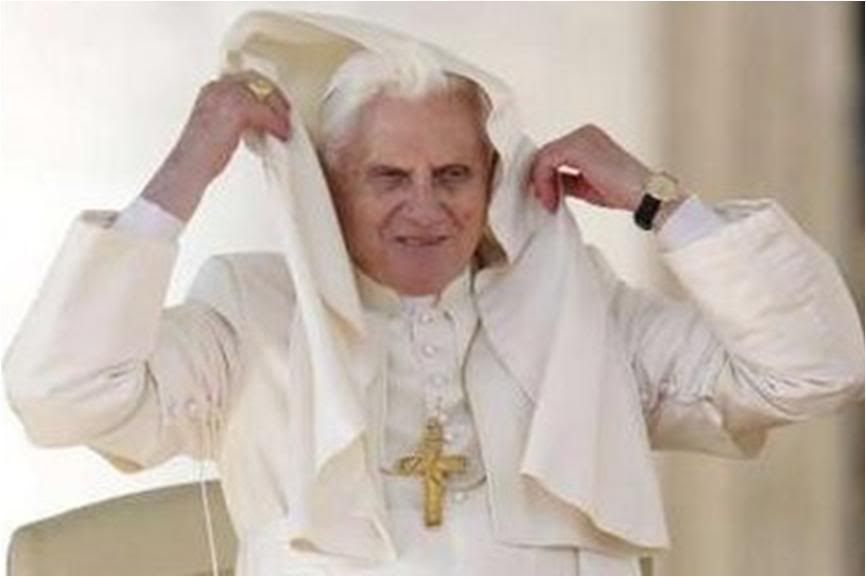
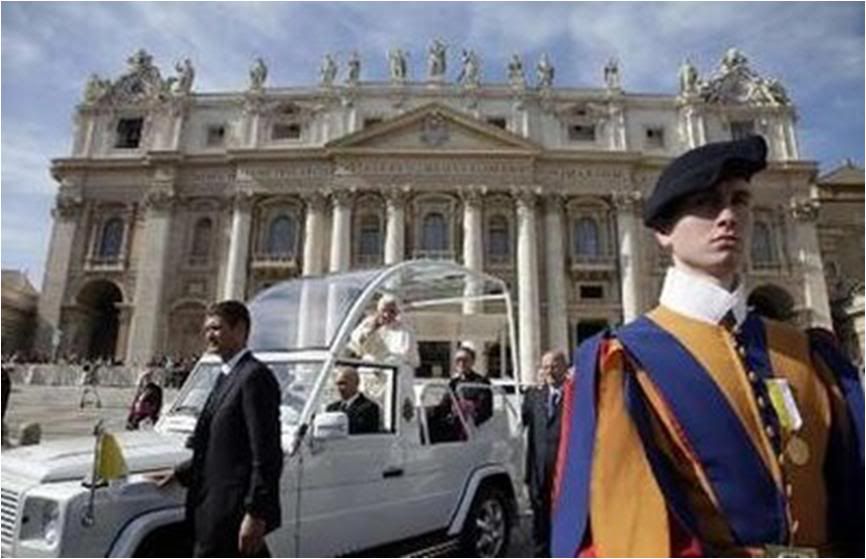
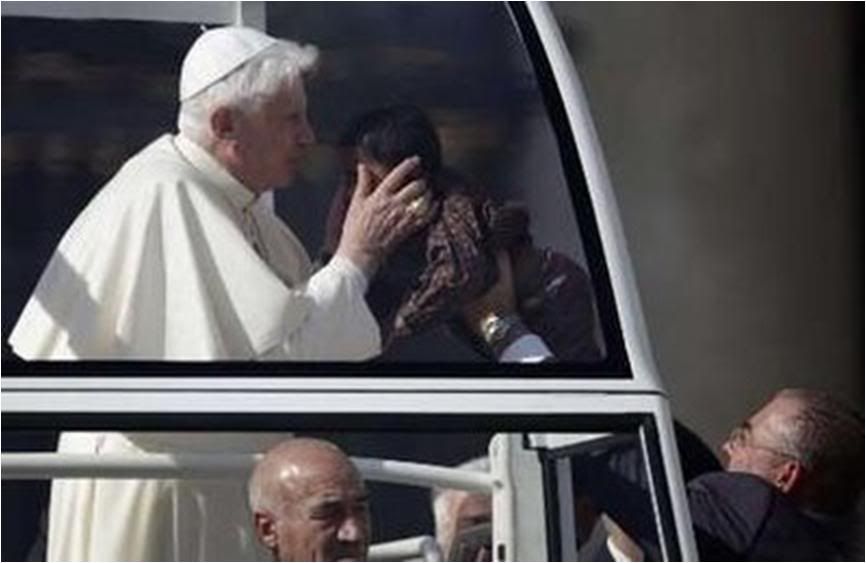
[Modificato da TERESA BENEDETTA 22/10/2009 01:34] |